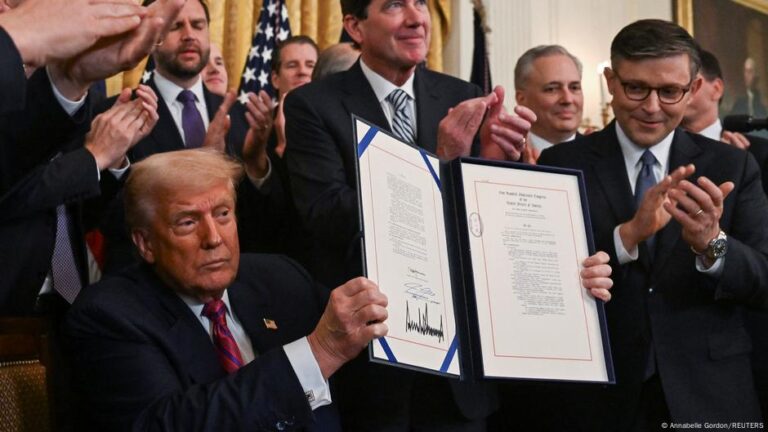US President Donald Trump signed a law to create a regulatory framework for stablecoins. This could create a way for the US-dollar-based cryptocurrencies to come into regular use for making payments and moving money.
The bill, also known as the GENIUS Act (Guiding and Establishing National Innovation for US Stablecoins), passed in the House of Representatives by a vote of 308 to 122 after being approved by the Senate earlier.
“The GENIUS Act, they named it after me,” Trump said at the bill-signing ceremony at the White House, where a few government officials, lawmakers, and crypto industry leaders were present.
“It’s good for the dollar and it’s good for the country. That’s why I backed you at an early stage. And I also did it for the votes,” he added, referring to the crypto industry.
This law is a huge victory for the crypto industry and its supporters. They have pushed for such a legislation for a long time, to legitimize the use of cryptocurrencies and make banks, retailers and consumers more willing to use them.
The industry donated more than $245 million (€210 million) in last year’s elections to boost pro-crypto candidates such as Trump.
What are stablecoins?
Stablecoins are designed to maintain a constant value, typically at a 1:1 peg to the US dollar. The GENIUS law requires them to be backed by liquid assets.
According to CoinGecko, the stablecoin market is valued at more than $260 billion (€223 billion). Under the new law, Standard Chartered bank says it could grow to $2 trillion by 2028.
“This groundbreaking technology will buttress the dollar’s status as the global reserve currency, expand access to the dollar economy for billions across the globe, and lead to a surge in demand for US Treasuries, which back stablecoins,” Treasury Secretary Scott Bessent said in a statement.
What do critics say about law?
However, critics say the law should have included stronger anti-money laundering protections and prohibited foreign stablecoin issuers. They are also wary of the growing influence of a sector that is already powerful.
“By failing to close known loopholes and protect America’s digital dollar infrastructure, Congress has risked making the US financial system a global haven for criminals and adversarial regimes to exploit,” Scott Greytak, deputy executive director of Transparency International US said.
Trump has signed an executive order to establish a strategic bitcoin reserve in March this year. He partly owns crypto company World Liberty Financial and launched a meme coin called $TRUMP in January.
Edited by: Dmytro Hubenko


